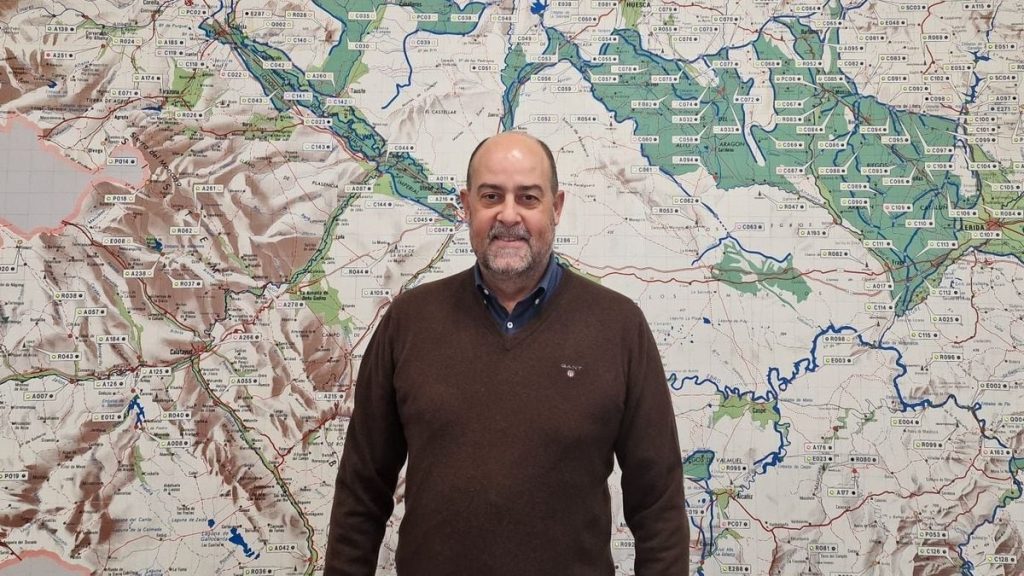Carlos Arrazola, the new president of the Ebro Hydrographic Confederation (CHE), smiles when he recalls the date of his appointment, which happened on December 28th, the day of the Holy Innocents. With almost a quarter of his term completed, Arrazola has already faced extreme weather conditions including river floods and droughts. He emphasizes the importance of managing these unpredictable events effectively, as both situations are concerning. Arrazola, a chemistry graduate with 20 years of experience in the organization, replaced Dolores Pascual as the head of the organization that regulates a basin spanning nine autonomous communities in Spain. He now reports directly to the Ministry of Ecological Transition and the Demographic Challenge of the Spanish government.
Arrazola reflects on the changes in water management over the past 20 years, stating that large water transfers are no longer considered the solution. The focus now is on maximizing the use of every drop of water. As the irrigation season begins in many areas of the Ebro basin, Arrazola faces a paradoxical situation where reservoirs on the left bank are overflowing due to recent rains, while those on the right bank remain at critically low levels. He mentions the possibility of imposing restrictions to address water scarcity, particularly in Catalonia. Despite some reservoirs reaching nearly 70% capacity after recent rainfall, others remain below average levels.
Although calls for water transfers persist in regions experiencing water shortages, Arrazola avoids political dimensions of the issue, stating that decisions on transfers are the responsibility of the government. He believes that desalination of seawater may be a more sustainable solution, as current water transfers are insufficient to address the water scarcity issue in Catalonia. Arrazola also expresses concern about potential proposals to manage the basin passing through Catalonia separately, emphasizing the importance of maintaining a unified approach to water management to support regional development and environmental conservation efforts.
With a diverse range of water needs within the same basin, Arrazola aims to complete pending hydraulic projects and digitize the organization to improve efficiency. He believes that optimizing water use and reducing production costs will better prepare them to face extreme weather events. Rather than building new reservoirs, Arrazola prioritizes completing existing projects. The current Ebro River Basin Hydrological Plan, in effect until 2027, includes five projects, four of which are located in Aragon. He emphasizes the importance of considering environmental and social impacts in project planning, stating that if the benefits do not outweigh the costs, it poses a challenge to societal progress.
Arrazola underscores the importance of managing water resources effectively to address the challenges posed by extreme weather events and varying water needs across the Ebro basin. He highlights the need to coordinate efforts and maintain a unified approach to water management to support regional development and environmental conservation. By prioritizing the completion of existing projects and leveraging technology to enhance efficiency, Arrazola aims to navigate the complexities of water management in the face of changing climate patterns and water availability.


